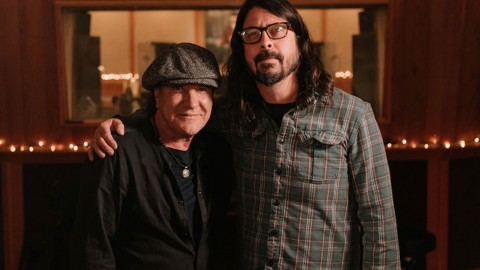
Ever played the classic rock documentary drinking game? Drummer described as ‘bedrock’? One finger. Steel guitar on the wall of a swanky home studio overlooking a landscaped back garden the size of Kent? One finger each. Septuagenarian in a paisley shirt wearing glasses indoors? Shot. Story about wrecking an expensive car with Keith Moon, killing an unknown but promising young folk singer? Down your drink. Bassist dies from heroin overdose? First one to drink everything in the flat wins.
This week sees the release of Daniel Roher’s new documentary about The Band called Once Were Brothers, and it’s a classic of the form. The Band’s story has it all. Years of slogging for an ‘overnight’ success. Flickers of genius fanned into flames in rural seclusion. Riches, bad booze, worse drugs, totalled classic cars, power struggles and subsequent lifelong resentment. It’s a riveting, turbulent and ultimately distressing story of fame, fortune and tragedy, yet somehow it feels as cosy and comfortable as a Mock The Week marathon on Dave.
Why? Perhaps because the trajectory of any classic rock band with enough drama in their story to make a documentary worthwhile is so standardised and familiar that they work in the same way as any genre-based comfort cinema. Just as you’re happy to watch yet another bunch of horny teenagers who’ve never heard of portable phone chargers hacked down to one survivor by an immortal, teleporting psychopath in a marginally different mask, there’s something reassuring about watching another group of mutton-chopped hicks concoct rare magic in obscurity, blaze a path to instant glory, burn out in three albums flat on powders and paranoia, split up over royalty wrangles, lose all their money divorcing supermodels and staging full performances of their flop solo triple concept albums on top of the Sphynx, have an awkward reunion for tax reasons and then gradually die from organ failures in their early 50s. In fact, one of the main reasons we can watch documentaries about hugely successful bands without seething with envy is the knowledge that, had we followed that career path ourselves, our odds weren’t too great of living to be in the documentary.

Of course, the rock docs that garner the most acclaim are the ones that set out to break the rise-fall-reunion routine of the legendary acts. The ones which focus on music’s gritty undergrowth rather than its towering oaks. 2012’s Searching For Sugar Man won its Oscar precisely because its hero wasn’t sat in an expensive studio reminiscing about jamming with Bo Diddley at their Hall Of Fame inauguration. The Devil and Daniel Johnson was a moving insight into the thin line between creativity and instability. Anvil!, for all its Tapness, is a far more accurate and fascinating depiction of the average long-term career in music, and the depths of delusion it requires to maintain the effort, than any number of Led Zeppelin flicks filled with stories you’ve read a dozen times already.
The almost-famous stories might be shorter on ego clashes, excess and Beatle cameos, but they’re more compelling for their unpredictability. Some of the most acclaimed music documentaries of recent years have shone the spotlight on faces and names that fascinate precisely because you haven’t heard of them. The storied figures tootling away on organ or belting out monster gospel backing vocals just out of shot. Films like 2008’s insight into ‘60s studio pioneers The Wrecking Crew and 2013’s 20 Feet From Stardom, which focused on the unknown backing singers for the likes of the Rolling Stones and David Bowie, brim with fly-on-the-wall mystique, expose the workings of an often cruel and unforgiving industry and pay overdue respect to a huge and unrecognised supporting cast, while also being far more relatable than watching another millionaire sat in front of a mixing desk slagging off Allen Klein. The ‘fame is hell’ narrative feels far less human than the starry-eyed chase.

It’s why what you might call ‘Struggle Docs’ are among the most celebrated – films like Wilco’s I Am Trying To Break Your Heart from 2002, tracing the band’s troubled recording of their breakthrough album ‘Yankee Hotel Foxtrot’, 2004’s battle of Portland flick Dig! or Penelope Spheeris’ Decline Of Western Civilisation trilogy, which spotlit the waifs, strays and degenerates – successful and otherwise – of LA’s punk and glam metal scenes through the ages. This is what makes Once Were Brothers‘ unique crossover work– a rare example of bit players striking it big on their own terms, then watching on helplessly as success tugged at their stray flaws until the whole thing unravelled. Just keep your glass topped up for all the car wrecks.
The post Docstars: an ode to the magical power of music films appeared first on NME Music News, Reviews, Videos, Galleries, Tickets and Blogs | NME.COM.









